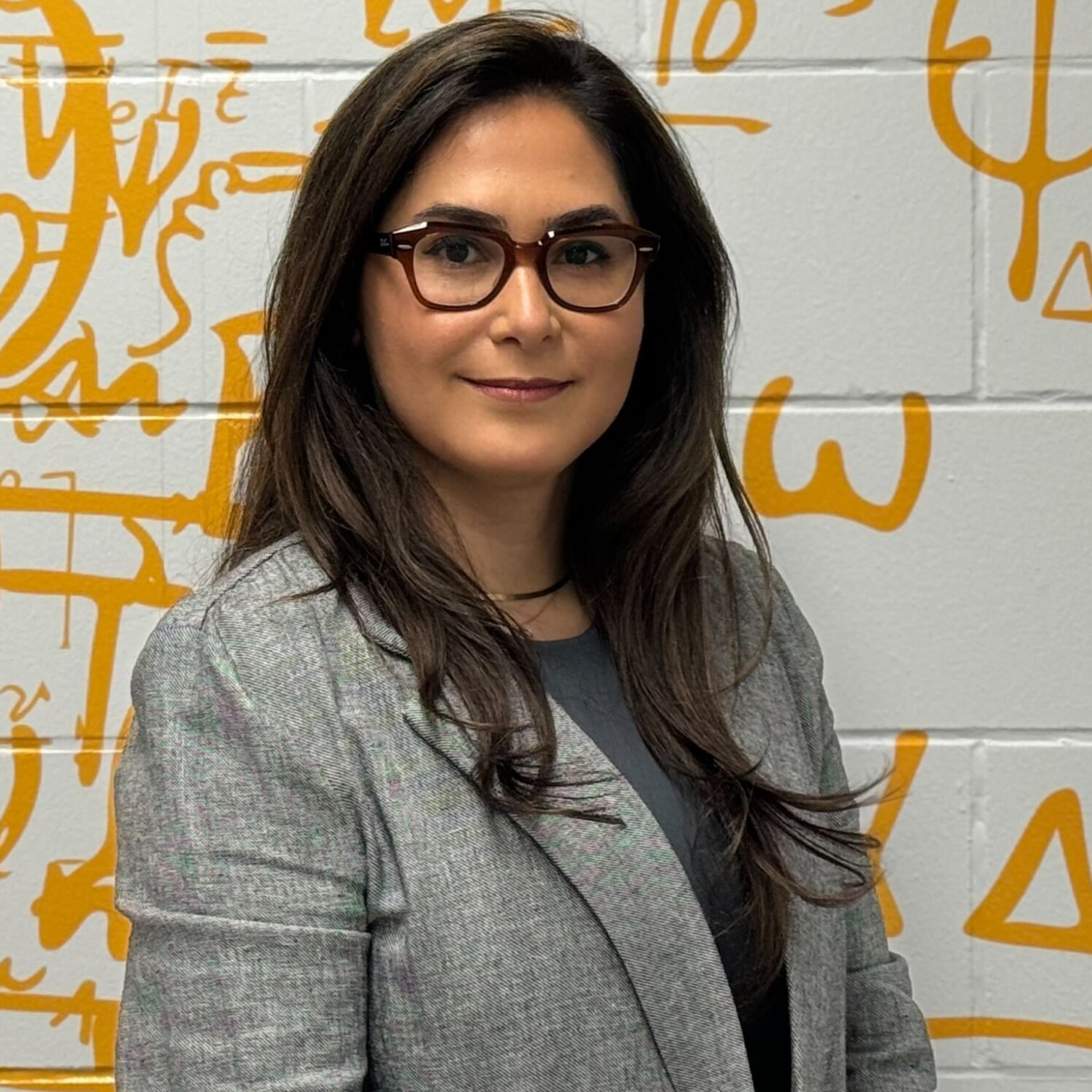2025 Awards
 |
Distinguished Contributions to Research in Education Award
Recipient: Robert Pianta (University of Virginia)
Dr. Robert Pianta is the recipient of the 2025 Distinguished Contributions to Research in Education Award. Dr. Pianta has been a major force in educational research as an internationally recognized pre-eminent scholar of early childhood education. Dr. Pianta’s research has focused on improving the education and wellbeing of children around the world. He investigates the critical, micro-level interactions between teachers and students in early childhood settings, examining the relational work of teaching and supporting improvement in student-teacher interactions to foster more positive learning environments and outcomes. He has been elected to the National Academy of Education and is a fellow of the American Educational Research Association.
The Distinguished Contributions to Research in Education Award is the premier acknowledgment of outstanding achievement and success in education research. It is designed to publicize, motivate, encourage, and suggest models for education research at its best.
|
| |
|
 |
Distinguished Public Service Award
Recipient: Joan Ferrini-Mundy (University of Maine)
The recipient of the 2025 Distinguished Public Service Award is Dr. Joan Ferrini-Mundy. Through her leadership and work in math education research, Dr. Ferrini-Mundy has implemented a strong vision for higher education and elevated the role of education research in transforming STEM teaching and learning. As current president of the University of Maine, she successfully led the institution’s efforts to gain Research 1 Carnegie status, while working to strengthen equity and student success. In her prior roles at the National Science Foundation, Ferrini-Mundy spearheaded efforts that centered the role of education research both within the work of the Education and Human Resources Directorate and across NSF. Dr. Ferrini-Mundy’s actions to build institutional capacity have benefited communities across Maine and the field of education research.
This award is granted annually in recognition of an individual who has worked to enact or implement policies that are well grounded in education research, or who has been at the forefront of efforts to increase recognition and support for education research.
|
 |
Excellence in Media Reporting on Education Research Award
Recipient: Kevin Mahnken (The 74)
The 2025 Excellence in Media Reporting on Education Research Award recipient is Kevin Mahnken, for his empirically grounded and deeply investigative reporting, which brings clarity to some of the most pressing issues in K-12 education. With a distinctive blend of research dissemination and compelling storytelling, Mahnken elevates the voices of educational researchers, while shedding light on critical challenges facing schools, districts, and communities nationwide. His work provides essential context for policymakers and the public. Mahhken’s reporting embodies the spirit of this award, as it both "exposes inequities in our education system and elevates promising avenues for increasing equal educational opportunity for all students."
Established in 2016, this award recognizes a person who has made noteworthy contributions to reporting on findings, bodies of research, or scholarship in the field of education research in any medium of public communication. The award honors a media professional whose work exemplifies promoting a broader vision of the value of education research to society.
|
| |
|




|
Palmer O. Johnson Memorial Award
Recipients: Denisa Gándara (University of Texas at Austin), Hadis Anahideh (University of Illinois, Chicago), Matthew P. Ison (Northern Illinois University), Lorenzo Picchiarini (Interlake Mecalux)
“Inside the Black Box: Detecting and Mitigating Algorithmic Bias Across Racialized Groups in College Student-Success Prediction"
AERA Open, Volume 10, July 2024.
The recipients of the 2025 Palmer O. Johnson Memorial Award are Denisa Gándara, Hadis Anahideh, Matthew P. Ison, and Lorenzo Picchiarini for their article, “Inside the Black Box: Detecting and Mitigating Algorithmic Bias Across Racialized Groups in College Student-Success Prediction,” published in AERA Open. Using nationally representative data and multiple machine learning approaches, the authors show that predictive models systematically used in higher education underperform for Black and Hispanic students, often misclassifying success and failure. This article exemplifies interdisciplinary inquiry—merging insights from data science, education policy, sociology, and racial equity studies—and offers an urgent call to action for institutions, researchers, practitioners, and policymakers using predictive analytics in student success who are committed to equity in data-driven decision-making.
The Palmer O. Johnson Memorial Award is presented annually in recognition of the most outstanding article published in an AERA journal. The elements of an outstanding article include: (1) significance of the contribution to advancing knowledge, (2) methodological sophistication and rigor, and (3) uniqueness in terms of problem specification or approach. Articles published in any one of the following AERA journals are eligible for consideration: AERA Open, American Educational Research Journal (AERJ), Educational Evaluation and Policy Analysis (EEPA), Educational Researcher (ER), or Journal of Educational and Behavioral Statistics (JEBS), except those articles that emanate from AERA public lectures. The selection committee considers all research articles published in the volume year immediately preceding the year in which the award is conferred. The award is granted based on substantial merit, as determined by the selection committee.
|



 |
Review of Research Award
Recipients: Andrene J. Castro, Genevieve Siegel-Hawley, Kimberly Bridges, Shenita E. Williams (Virginia Commonwealth University)
"Drawn Into Policy: A Systematic Review of School Rezoning Rationales, Processes, and Outcomes"
Review of Educational Research, Volume 94, Issue 4, August 2024.
The 2025 Review of Research Award is presented to Drs. Andrene J. Castro, Genevieve Siegel-Hawley, Kimberly Bridges, and Shenita E. Williams, for their article “Drawn Into Policy: A Systematic Review of School Rezoning Rationales, Processes, and Outcomes,” which was published in the August 2024 issue of the Review of Educational Research. Castro, Siegel-Hawley, Bridges, and Williams’ manuscript is a timely, cutting-edge contribution to the field that synthesizes a fragmented body of literature on school rezoning. Drawing on critical policy analysis, the awardees stress the need for transformative action that emphasizes “the intent of rezoning to transform school communities rather than replicate (or worsen) systems of educational inequity through school attendance boundaries” (p. 568). The manuscript also calls for more research with sustained attention to race, racism, and the political context while providing a roadmap for future empirical and theoretical work to directly engage the equity dimensions of rezoning.
This award is given in recognition of an outstanding review of research article appearing in the Review of Research in Education or the Review of Educational Research.
|
 |
Outstanding Book Award
Recipient: OiYan A. Poon (College Admissions Futures Co-Laborative)
Asian American Is Not a Color: Conversations on Race, Affirmative Action, and Family
The 2025 Outstanding Book Award is presented to Dr. OiYan Poon for her exemplary book, Asian American Is Not a Color: Conversations on Race, Affirmative Action, and Family. In this work, Dr. Poon thoughtfully addresses her daughter’s questions about race and racism through a comprehensive examination of race relations and affirmative action, with a particular focus on the experiences of Asian Americans. This book is distinguished by its analytical and insightful approach, presented in an accessible manner suitable for a broad audience.
The Outstanding Book Award was established to acknowledge and honor the year’s best book-length publication in education research and development.
|
| |
 |
E.F. Lindquist Award
Recipient: Linda Cook (ETS)
Dr. Linda Cook is the 2025 recipient of the E. F. Lindquist Award. After obtaining her doctorate in educational measurement and statistics from the University of Massachusetts Amherst, Dr. Cook had a distinguished career at ETS, including as vice president of assessment and director of the Center for Validity Research. Dr. Cook’s work has enhanced our understanding of theoretical and applied issues in equating test scores. She has also focused on issues of fairness in educational assessment, including the provision of accommodations for test takers with disabilities, and co-authored the fairness chapter in the 2014 joint Standards for Educational and Psychological Testing. Linda’s past leadership roles include vice president of AERA Division D and president of the National Council on Measurement in Education. Apart from her technical contributions, Linda is well known for mentoring generations of early career practitioners and scholars with warmth and wisdom.
This award is presented jointly by AERA and ACT in recognition of outstanding applied or theoretical research in the field of testing and measurement. The award is meant to acknowledge a body of research of an empirical, theoretical, or integrative nature rather than a single study.
|
| |
 |
Early Career Award
Recipient: Raquel Muñiz (Boston College)
Dr. Raquel Muñiz is the recipient of the 2025 Early Career Award. Dr. Muñiz is celebrated for her exceptional integration of education policy and law, particularly focusing on educational equity. Her research examines the impact of legal frameworks on educational practices, emphasizing marginalized groups. By analyzing policy decisions' effects on educational outcomes, her work offers both theoretical insights and practical reforms. Dr. Muñiz actively contributes to legal education and policy reform, significantly shaping debates around educational equity. Her research bridges educational theory, policy, and law to address inequalities in K-12 and higher education. With 26 journal articles in prestigious publications including the Harvard Law & Policy Review, her cross-disciplinary expertise is widely recognized. In short, Dr. Raquel Muñiz's commitment to educational equity and innovative research profoundly impacts both academia and the practical realms of education policy and law.
Established to honor an individual in the early stages of their career no later than 10 years after receipt of the doctoral degree, this award is granted for study in any field of educational inquiry.
|
| |
 |
Social Justice in Education Award
Recipient: Gloria Swindler Boutte (University of South Carolina)
Dr. Gloria Boutte is the recipient of the 2025 Social Justice in Education Award. Dr. Boutte’s research focus is on social justice, anti-racism, and pro Blackness. She broadly explores culturally relevant education centering on the educational experiences of African Americans and other culturally and linguistically diverse students. She has written eight books and over 100 articles and has accumulated $13 million in grants. Dr. Boutte’s work advocates for the communal uplift of Black children, presenting education as a transformative tool for social change. She encourages educators to adopt “pro-Black” perspectives that both celebrate African American language and history and challenge anti-Black racism in educational contexts. Her book We Be Lovin’ Black Children has been acclaimed for its actionable strategies. Indeed Dr. Boutte is a pioneering social justice scholar and educator.
Established in 2004, the Social Justice in Education Award honors an individual who has advanced social justice through education research and exemplified the goal of linking education research to social justice.
|
 |
Distinguished Contributions to Gender Equity in Education Research Award
Recipient: Deirdre L. Cobb-Roberts (University of South Florida)
The recipient of the 2025 Distinguished Contributions to Gender Equity in Education Research Award is Dr. Deidre Cobb-Roberts, an exemplary scholar whose groundbreaking research centers the experiences of Black women in higher education. A former McKnight Fellow, Dr. Cobb-Roberts has revolutionized the study of gendered racism and its effects on Black women faculty and administrators. With articles in prestigious journals and co-edited books, including Black Women, Academe, and the Tenure Process and Mentoring as Critically Engaged Praxis, she is a leading voice in the field. A professor, department chair, and mentor to nearly 100 doctoral students, she is a possibility model who exemplifies excellence in advancing gender equity and uplifting marginalized voices.
Established in 2006, the Distinguished Contributions to Gender Equity in Education Research Award recognizes individuals within AERA for distinguished research, professional practice, and activities that advance public understanding of gender and/or sexuality at any level in the education community.
|
| |
 |
|
Exemplary Contributions to Practice-Engaged Research Award
Recipient: Leticia Alvarez Gutiérrez (The University of Utah)
The recipient of the 2025 Exemplary Contributions to Practice-Engaged Research Award is Dr. Leticia Alvarez Gutiérrez, whose groundbreaking contributions as a scholar-activist merit this recognition. Her multi-faceted research in immigrant education and participatory methodologies transcend academic boundaries, making an indelible impact on the communities she serves. Through her dedication, innovative research, and unwavering commitment to bridging the gap between researchers and practitioners, Dr. Gutiérrez addresses critical educational issues by advancing our understanding and providing actionable solutions for educators, students, and communities to effect real change in the societal landscape. She has published her research findings in AERA Open, Urban Review, and Theory into Practice.
This award is presented to an education research scholar or scholars in recognition of collaborative project(s) between researchers and practitioners that have had sustained and observable effects on contexts of practice.
|
|
 |
Outstanding Public Communication of Education Research Award
Recipient: David Edward DeMatthews (University of Texas at Austin)
The 2025 Outstanding Public Communication of Education Research Award is presented to Dr. David Edward DeMatthews. Dr. DeMatthews’ research contributions are exemplary in presenting the interconnectedness of critical areas of inquiry in educational leadership and schooling and demonstrating the implications for practice and policy. Examining issues ranging from dual language to special education to school choice, his work captures both the complexities and possibilities for education research, policy, and practice. His commitment to educational access and justice is evident in the breadth of his publications and public speaking. Among the outlets for his work are the New York Times, Washington Post, USA Today, Associated Press, ABC News, Education Week, and the Houston Chronicle. Dr. DeMatthews’ dedication to examining cutting-edge issues in our field, coupled with his extraordinary ability to translate difficult and often controversial topics to a wide audience, reflects the best of public communication of education research.
This award honors scholars exemplary in their capacity to communicate the importance of education research to the broad public, including education communities. It recognizes scholars who have excelled in conveying important findings and research to wide audiences and who have demonstrated the capacity to deepen understanding and appreciation of the value of education research in the public sphere.
|
| |
 |
Scholars of Color Distinguished Career Contribution Award
Recipient: Valerie Kinloch (Johnson C. Smith University)
The recipient of the 2025 Scholars of Color in Education Distinguished Career Contribution Award is Dr. Valerie Kinloch. Dr. Kinloch’s research and leadership have consistently advanced equity, justice, and transformative action in K-12 and higher education. Through her work, she has redefined the role of the scholar and leader by centering community engagement, institutional transformation, and student empowerment. This includes pioneering initiatives in literacy education, creating spaces that elevate the voices of Black and Brown youth, and leading large-scale equity-driven reforms in academic institutions. Her distinguished career exemplifies a lifelong commitment to challenging systemic barriers, fostering inclusive learning environments, and ensuring that education serves as a vehicle for justice and institutional change.
Presented to a senior-level scholar, usually 20 years or more after receipt of the doctoral degree, this award is intended to recognize (a) scholars who have made significant contributions to the understanding of issues that disproportionately affect minority populations, and (b) minority scholars who have made a significant contribution to education research and development.
|
| |
 |
Scholars of Color Mid-Career Contribution Award
Recipient: Tisha Lewis Ellison (University of Georgia)
The recipient of the 2025 Scholars of Color in Education Mid-Career Contribution Award is Dr. Tisha Lewis Ellison. Her scholarship is dedicated to advancing equity in digital and STEAM literacy education, particularly for Black families and Black and Latina/o/x/é youth. Her pioneering research challenges deficit narratives by illuminating how these communities leverage digital technologies and multimodal tools for empowerment, racial equity, and social change. Her work critically examines the intersections of race, literacy, and technology, emphasizing the importance of culturally responsive and inclusive educational practices. Currently, she investigates the racialized impact of artificial intelligence and digital technologies on marginalized youth, employing innovative methodologies to reimagine ethical and inclusive digital spaces that foster equity in education.
Presented to a scholar in mid-career who is beyond the first level of professional appointment and for whom 10 or more years have passed since receipt of the doctoral degree, this award is intended to recognize (a) scholars who have made significant contributions to the understanding of issues that disproportionately affect minority populations, and (b) minority scholars who have made a significant contribution to education research and development.
|
| |
 |
Scholars of Color Early Career Contribution Award
Recipient: Roderick L. Carey (University of Delaware)
The recipient of the 2025 Scholars of Color in Education Early Career Contribution Award is Dr. Roderick L. Carey. His scholarship at the intersection of education, social psychology, and critical theory has significantly advanced the understanding of the educational experiences of racially and ethnically marginalized youth. A widely recognized expert, his insights have been featured by PBS NewsHour, NBC News, and multiple academic and public platforms. His pioneering research employs interdisciplinary qualitative methodologies to examine how Black and Latino boys conceptualize their “postsecondary future selves” and how they experience “Black boy mattering” in educational settings. Currently, he is expanding his Black Boy Mattering Project to explore the significance of racialized mattering for diverse student populations, integrating community-based research to inform school policies and practices.
Presented to a scholar who is within the first decade of their career after receipt of a doctoral degree, this award is intended to recognize (a) scholars who have made significant contributions to the understanding of issues that disproportionately affect minority populations, and (b) minority scholars who have made a significant contribution to education research and development.
|
| |
|